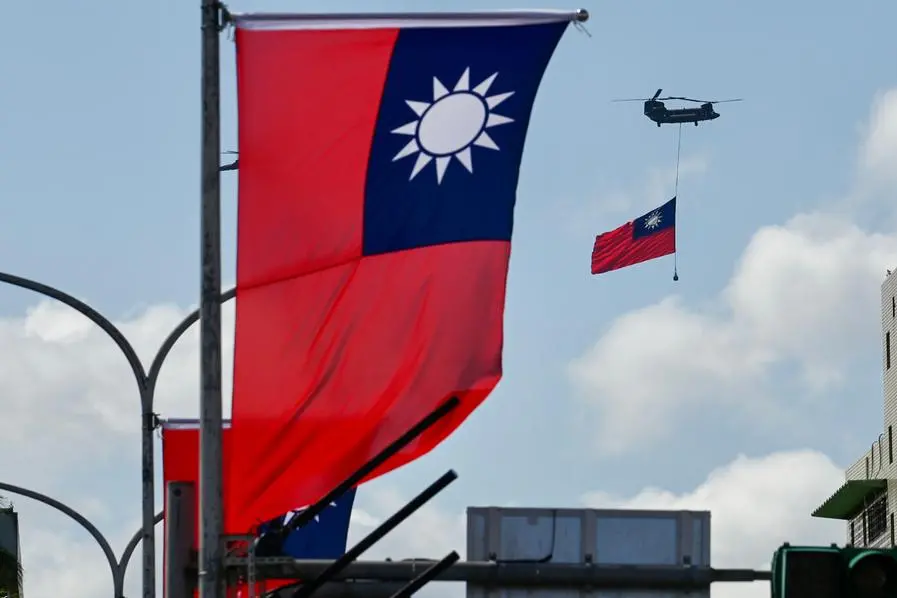PHOTO
A US congressman said during a visit to Taipei Thursday that Washington's partnership with Taiwan was key to countering China's "increasingly aggressive actions in the region".
China considers democratic Taiwan as part of its territory, though Taipei does not recognise that claim, and has worked in recent years to strengthen its partnership with top ally and key weapons provider the United States.
The island is also located at the edge of maritime hotspot the South China Sea, which China claims almost in its entirety, despite an international court ruling to the contrary and competing claims from Southeast Asian countries.
Visiting Republican congressman Jack Bergman -- chairman of the House Subcommittee on Intelligence and Special Operations, which deals with defence policy -- said Thursday that Washington's relationship with Taiwan was "key for the future security of the region".
"This includes a strong Taiwan maritime strategy and how we can work together in shared goals to counter China on their increasingly aggressive actions in the region," Bergman said during a meeting with Taiwanese President Tsai Ing-wen.
Led by Bergman, the US delegation's visit to Taipei comes a little over a week after US Secretary of State Antony Blinken was in Manila to assure its longtime ally of its "ironclad defence commitments".
The Philippines is also a claimant in the South China Sea, and has accused Beijing's ships of causing collisions with its boats and harassing them with water cannon around disputed shoals.
Blinken's remarks drew a rebuke from Beijing that Washington had "no right" to interfere in the issue.
Days after Blinken's visit, Taipei's defence ministry detected 36 Chinese aircraft around Taiwan during a 24-hour period -- the highest number reported this year.
On Thursday, the ministry said it had detected 20 Chinese aircraft and eight naval vessels around the island in the 24 hours leading up to 6:00 am (2200 GMT Wednesday).
China deploys warplanes, drones and ships around Taiwan on a near-daily basis -- actions known as "grey zone" tactics that stop short of outright acts of war, which analysts say could serve as a warning to Taiwan and its partners.
President Tsai has ramped up defence spending since she took office in 2016, but major delays have created a $19.1 billion backlog of US weapons deliveries, according to think tank the Cato Institute.
Tsai -- with whom Beijing cut off high-level communications after her election -- thanked the United States on Thursday for continuing to support Taiwan's self-defence.
This includes the "Further Consolidated Appropriations Act 2024", signed this month by US President Joe Biden, which Tsai pointed out included "a budget for military assistance for Taiwan and prioritises accelerating arms delivery".
The act allocates $300 million in foreign military financing for "strengthening the defense needs of Taiwan".





















